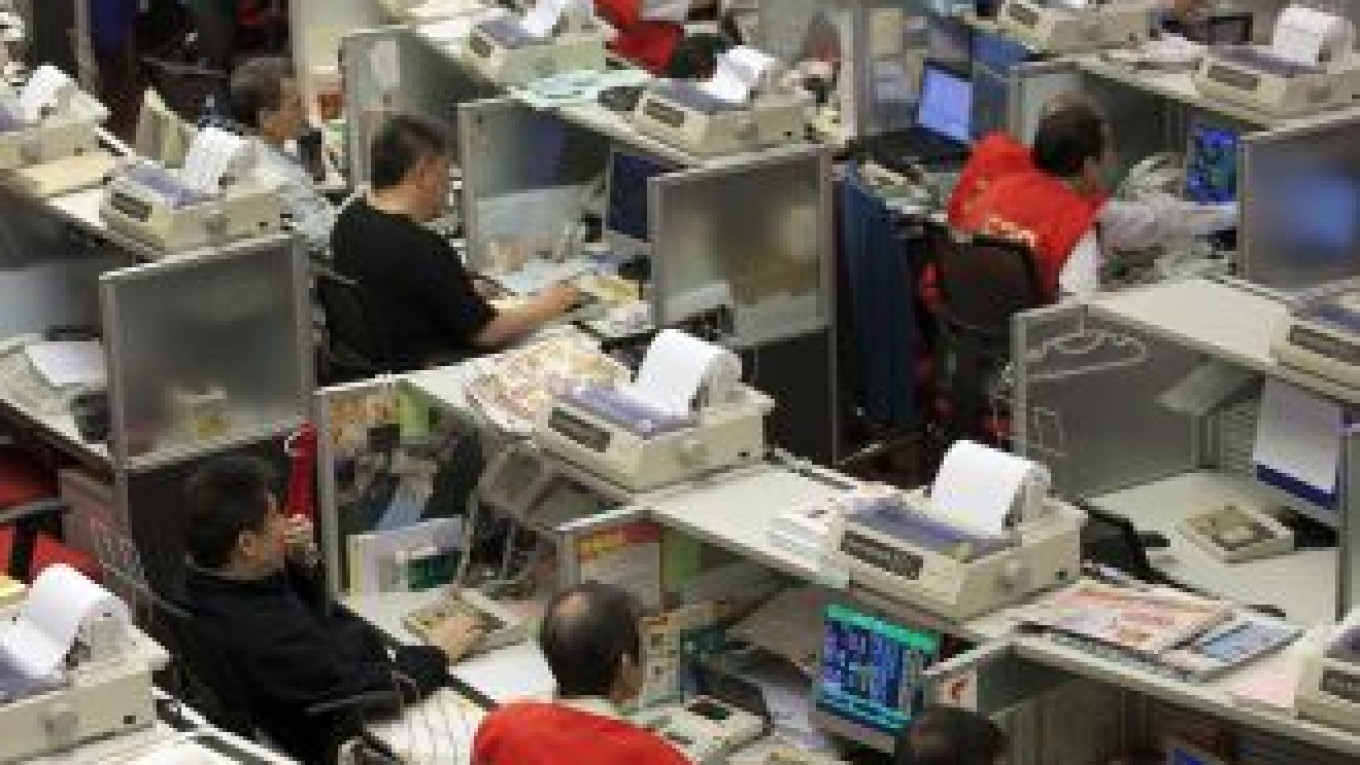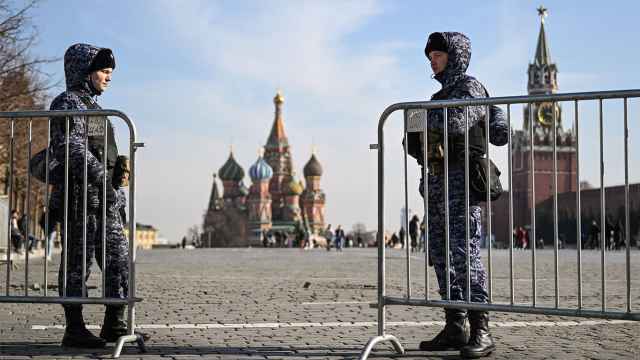Russian companies that export commodities to China or import Chinese-made shoes and clothes are the best candidates to float their shares on the Hong Kong Stock Exchange, Hong Kong-based investor Sergio Men said Monday.
"It would be absolutely irrational for companies whose business is totally unrelated to China or Southeast Asia to move toward the Hong Kong stock exchange," Men, who is managing partner at Eurasia Capital Partners, told reporters.
In agreement with that statement, Oleg Deripaska's aluminum company RusAl was the first Russian company to list its stock in Hong Kong in January of last year, while Tsentrobuv — which bills itself as the country's largest shoe retailer — said in February that it was considering a share offer there next year.
One of the earliest Russian companies that expressed interest in floating in Hong Kong was Deripaska's Strikeforce Mining & Resources. It scheduled the listing for fall 2008 but canceled when the crisis hit. The company delayed the IPO again last year.
A source close to Strikeforce said Monday that an IPO was no longer a priority because the company was looking to diversify its business and form alliances with strategic partners first.
The strategy of Strikeforce's parent company, En+, says all its units should eventually offer shares to the public, but an En+ spokesman said it didn't comment on IPO prospects of its specific companies.
Eurasia Capital is sponsoring the second Russia Capital Raising and Investment Summit in Hong Kong next month.
Organized by two regional business publications owned by Haymarket Publishing, the largest United Kingdom private publisher, the event aims to bring together Russian executives and investors from around Southeast Asia, including China, India and Korea.
Men said he thinks that Sportmaster, one of the country's largest retail chains of sporting goods, would eventually offer its stock to investors in Hong Kong. Sportmaster could not be reached for comment Monday afternoon.
A Message from The Moscow Times:
Dear readers,
We are facing unprecedented challenges. Russia's Prosecutor General's Office has designated The Moscow Times as an "undesirable" organization, criminalizing our work and putting our staff at risk of prosecution. This follows our earlier unjust labeling as a "foreign agent."
These actions are direct attempts to silence independent journalism in Russia. The authorities claim our work "discredits the decisions of the Russian leadership." We see things differently: we strive to provide accurate, unbiased reporting on Russia.
We, the journalists of The Moscow Times, refuse to be silenced. But to continue our work, we need your help.
Your support, no matter how small, makes a world of difference. If you can, please support us monthly starting from just $2. It's quick to set up, and every contribution makes a significant impact.
By supporting The Moscow Times, you're defending open, independent journalism in the face of repression. Thank you for standing with us.
Remind me later.






